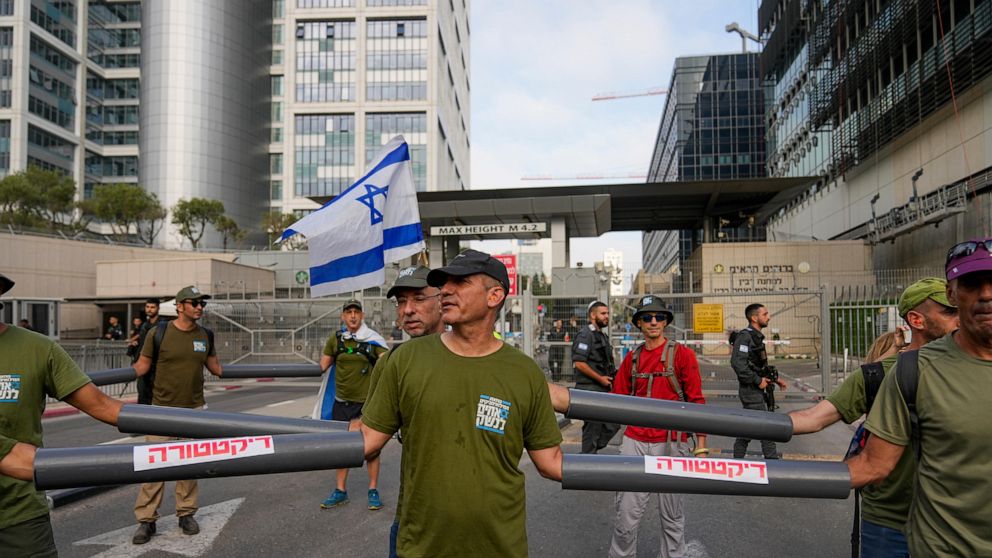Israeli Protesters Stage ‘Day of Disruption’ to Oppose Netanyahu’s Judicial Overhaul Plan, Blocking Highways
In a powerful display of dissent, thousands of Israeli protesters took to the streets on Sunday to stage a ‘Day of Disruption’ in opposition to Prime Minister Benjamin Netanyahu’s proposed judicial overhaul plan. The demonstrators, representing a diverse range of groups and political affiliations, blocked major highways across the country, bringing traffic to a standstill and sending a clear message of discontent.
Netanyahu’s controversial plan aims to change the way judges are appointed to Israel’s Supreme Court, a move that critics argue would undermine the country’s democratic principles and consolidate the prime minister’s power. The proposed changes would grant the government greater control over the appointment process, potentially enabling political interference in the judiciary.
The ‘Day of Disruption’ was organized by a coalition of civil society organizations, including the Israeli Bar Association, the Movement for Quality Government, and several human rights groups. Their collective goal was to raise awareness about the potential consequences of the judicial overhaul plan and to defend the independence of the judiciary.
Protesters gathered at various locations throughout the country, blocking highways and causing significant traffic disruptions. In Tel Aviv, demonstrators formed human chains across major intersections, preventing vehicles from passing through. Similar scenes unfolded in Jerusalem, Haifa, and other cities, as citizens voiced their opposition to what they perceive as a threat to Israel’s democratic institutions.
The protest movement has gained momentum in recent months, with weekly demonstrations taking place outside Netanyahu’s official residence in Jerusalem. These protests initially focused on the prime minister’s alleged corruption and mishandling of the COVID-19 crisis but have now expanded to include opposition to his judicial overhaul plan.
Critics argue that Netanyahu’s proposed changes would undermine the separation of powers and erode the independence of the judiciary. They fear that by granting the government more control over judicial appointments, the prime minister could stack the Supreme Court with judges who are loyal to him, thereby compromising the court’s ability to act as a check on executive power.
Supporters of the plan argue that it is necessary to restore balance and accountability to the judiciary. They claim that the current system allows a small group of unelected judges to wield significant power and influence over the legislative and executive branches of government. They believe that the proposed changes would introduce greater transparency and democratic oversight into the appointment process.
However, opponents remain unconvinced and see the plan as a thinly veiled attempt by Netanyahu to consolidate his power and evade potential legal challenges. They argue that the prime minister’s personal interests are driving the proposed overhaul, rather than a genuine concern for the integrity of the judiciary.
The ‘Day of Disruption’ was a significant escalation in the protest movement against Netanyahu’s judicial overhaul plan. By blocking highways, the demonstrators aimed to disrupt daily life and draw attention to their cause. The widespread participation across different cities and demographics underscores the growing concern among Israelis about the erosion of democratic values.
As the protest movement gains momentum, it remains to be seen whether Netanyahu will reconsider his plan or push ahead despite the opposition. The outcome of this battle will have far-reaching implications for Israel’s democratic institutions and the balance of power within the country.



